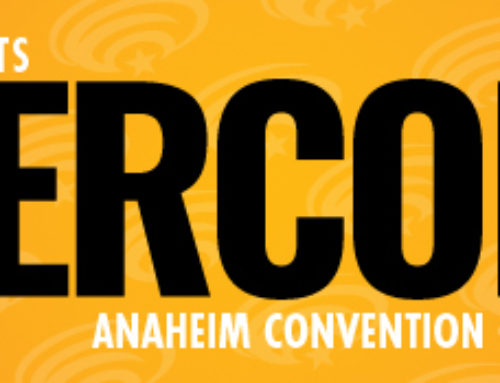The National Institute of Mental Health reports that 46.3% of 13-18 year olds have a diagnosable mental illness. Often their experiences leave young adults feeling isolated, and lead 1 in 6 teenagers to seriously consider suicide.
Project UROK, which stands for “You are OK,” hopes to combat the stigmas surrounding mental health. The nonprofit organization is creating funny, meaningful videos for teenagers struggling with mental health issues, made by people who have been there before. Since launching the website in March, community users and pop culture celebrities like Mara Wilson and Wil Wheaton have all shared their stories.
When Jenny Jaffe founded Project UROK in 2014, her goal was simple – to create the community of resources she wished had existed when she was a teen dealing with mental illness.
I recently spoke with Jenny about the project and about the portrayal of mental illness in pop culture.
What was that driving force behind starting Project UROK?
JJ: My training is as a TV comedy writer, and one of the things about this industry is that jobs end and leave you with long periods of unemployment and soul searching. During one such period, I wrote an article for xoJane about my experience in exposure therapy for OCD when I was sixteen. I was so scared to put it out there because I had not really talked about everything I struggled with about my mental health, even though it had been one of the defining things in my life.
I wrote this article because I was trying to put myself out there more, and the response was surprising because everyone was so positive, but there was still nothing out there in terms of a destigmatization resource through personal stories. I was really confused as to why that hadn’t been done already, so I set about making it.
Can you talk about some of the positive outcomes you’ve seen since creating Project UROK?
JJ: There have been a lot of pretty amazing emails and messages on social media about Project UROK. I spoke with someone recently who told me that because of Wil Wheaton’s video, he realized that what he was experiencing was depression, and that he has been able to start seeking treatment because of it. And that’s so much on Wil because the way he describes depression is so poignant, but it was a really rewarding moment.
It’s very different seeing a mental health professional and having them reassure you that your experience is not unique and to hear it from someone who’s more or less a peer. Being able to recognize your story in that is really important. That’s one of the reasons we are trying to get all kinds of representation and all kinds of people to tell their stories. Experiencing mental illness is such a personal thing, and there is no one who is going to have your exact same experience, but we want everyone who comes to the website to feel in some way that they are being represented.
What roles do you feel that the media and pop culture play in portraying mental illness?
JJ: The media plays an important role in defining what conversations we have and how we have them. I think pop culture has a responsibility to portray the world it wishes to create. Even when it’s showing things that are very difficult to talk about, I think it can do so in a way that shows what they would like to change. When it comes to mental illness representation it’s still easy to cast off a character as “crazy” and “dangerous”, and that’s the portrayal we get a lot of the time. What we don’t see are characters who are capable and relatable and well-loved, who are also dealing with a mental illness in the way that most people do – which is not in a big, dramatic and scary way, but in little day-to-day ways.
I’d love to see a show about a character, for example, who is bipolar. They are someone who has their difficulties, seeks treatment, and basically just tries to live their life the best they can. There is a two-way mirror between pop culture and the real world, and I think we reflect back and forth the world that we create. If there were more representations of positive role models dealing with mental illness it would be great for kids who are then diagnosed to be able to say – well this character who I love is going through the same thing as me, and they are doing ok, so maybe I’m ok too.
For more information on Project UROK, visit their website ProjectUROK.org or @projectUROK on twitter. If you would like to become involved in the project, the number one way to get involved is to spread the word. If you are so inclined, please share your story. Jenny and her team LOVE to receive user submitted videos. Instructions on how to do that can be found on their website.
So what are Jenny Jaffe’s top five geek loves?
JJ: My top one right now is Hamilton the musical, because Broadway is always number one in my heart. I’m really into the show Gravity Falls. It’s like my favorite thing. Also, I just got into Steven Universe. I’m so glad this exists in my life now. I have an Erin Condren life planner and I plan with stickers and all sorts of little organizer things. I love my planner and I use so much washi tape. It keeps me going through the week, especially when things get really stressful. And I’m really geeky about Halloween!
And if you are in New York for NYCC this weekend, be sure to check out Jenny on the A Force for Good: The Powerful Partnership Between Mental Health and Pop Culture panel with Vasilis K. Pozios, M.D. (Broadcast Thought), H. Eric Bender, M.D., actor and writer Mara Wilson, Praveen R. Kambam, M.D., Janina Scarlet, Ph.D. (Superhero Therapy), Eisner-nominated writer Alex de Campi (No Mercy), and moderator Jeff Trexler (Broadcast Thought) on Sunday, October 12th at 4pm.
(images thanks to Jenny Jaffe’s team)



This panel was FANTASTIC! They recorded it so I hope it will be streaming somewhere at some point.